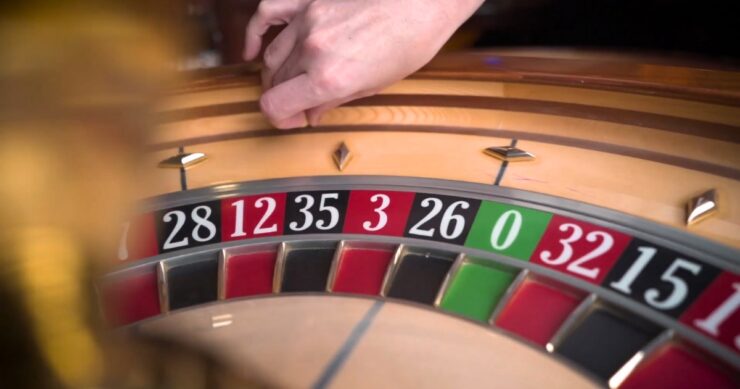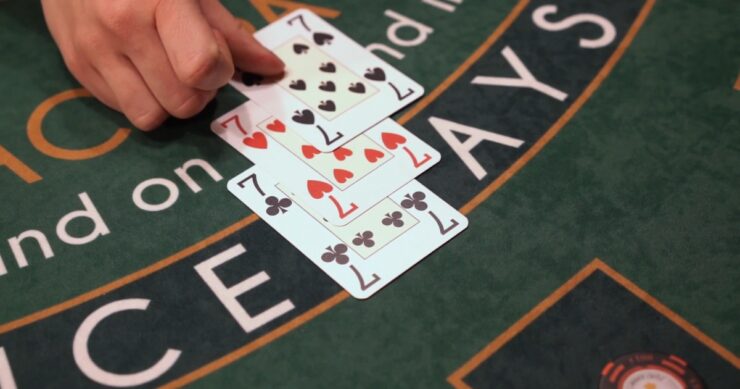Chasing losses at the casino may be a tempting endeavor, whether you’re sitting at a poker table, spinning the roulette wheel, or urgent ‘spin’ on an internet slot. It’s a common situation where players try to recoup their losses with the hope that a win is just around the nook.
This practice can lead to a cycle of increased participation and the potential for greater losses. Recognizing the signs and understanding the pitfalls of chasing losses are essential steps in practicing responsible gambling.
If you want to visit an online casino that provides all the measures to ensure all the measures of responsible gambling, visit FruitySlots.com
Responsible gambling is a method that calls for cognizance of one’s very own gambling behavior, the ability to manipulate it, and information on when to prevent it.
It’s about making knowledgeable choices and understanding the mechanics of games, the odds, and the belief that effects are random and no longer within one’s management.
Key Takeaways:
- Recognizing the risks of chasing losses is vital for maintaining control over gambling habits.
- Responsible gambling involves setting limits, understanding game mechanics, and knowing when to stop.
- Seeking support and accessing resources are important steps if gambling becomes a problem.
Chasing Losses

In addressing the complex dynamics of gambling, it’s essential to understand the behaviors that signal the issue and the serious implications of chasing losses.
Defining the Problem and Its Impact
Problem playing refers to a pattern of behavior that compromises, disrupts, or damages private, family, or vocational pursuits. It encompasses various ranges of addiction and is frequently referred to as addiction, compulsive, or ailment.
The latter is formally identified in diagnostic manuals and requires a rigorous set of criteria to be met for analysis.
The impact of the problem can go a long way, doubtlessly leading to widespread economic debt, dating breakdowns, and mental health problems, such as despair and tension.
- Persistent and recurrent tricky conduct leads to clinically good-sized impairment or misery.
- An uncontrollable urge to keep going no matter the toll it takes on one’s existence.
Recognizing the Signs of Chasing Losses
Chasing losses is a hallmark sign of problem gambling. It’s the act of continuing to gamble to recover money lost in previous bets. This behavior can not only exacerbate existing financial problems but also catalyze further behavior, creating a vicious cycle that is hard to break.
Signs of chasing losses include:
- Gambling larger amounts to try and recoup losses
- Continually gambling after a series of losses
- Restlessness or irritability when trying to reduce negative effects
Strategies for Being More Responsible

In pursuing the thrill of gambling, it’s crucial to adopt strategies that keep you within the safe zone that ensures conducting yourself responsibly. Understanding and implementing these strategies ensures your casino experience remains enjoyable without negatively impacting your financial and emotional well-being.
Setting Time and Money Limits
To maintain control over your habits, set concrete limits on both the time and money you dedicate to gambling:
- Decide on the maximum amount of time you can afford to spend gambling and stick to it. Use alarms or notifications as a reminder.
- Determine a budget that won’t infringe on your essential expenses. Deposit limits can ensure you don’t exceed this amount.
Tools and Self-Exclusion Programs
Leverage available gambling tools to keep your activities in check:
- Use apps or journals to monitor how often and how much you gamble.
- Register for a self-exclusion program that prevents you from accessing gambling venues or online platforms for a set period.
Knowing When to Seek Professional Help
Recognize the signs that indicate a need for intervention:
- If gambling becomes a stressor, seek counseling focused on time management and coping strategies.
- When these habits escalate, consider professional treatment programs that can provide structured support and recovery.
Legal and Regulatory Aspects of Gambling

When you engage with casino gambling, it’s crucial to understand the legal and regulatory framework that governs these activities. Licenses, regulations, and compliance are fundamental to maintaining a secure gambling environment, both for you and the gaming operators.
Licenses and Regulations
Gambling licenses ensure that casino operators abide by strict standards set to protect their players. In the United States, both state and national regulators issue these licenses.
The Pennsylvania Gaming Control Board, for instance, regulates all activities in Pennsylvania, including online casinos, ensuring they comply with the law. Similarly, in states like New Jersey, Michigan, Connecticut, and Virginia, state regulators fiercely oversee online casinos to ensure they meet national standards.
With online gaming, you should check if an operator holds a valid license issued by a credible jurisdiction. Legal online gambling sites prominently display their license information, typically at the bottom of their homepage or within the ‘About Us’ section. This transparency indicates that they’re meeting the regulatory requirements for operation.
The Role of State and National Regulators
State regulators, inclusive of the New Jersey Division of Gaming Enforcement or the aforementioned Pennsylvania frame, are tasked with overseeing all components of gambling inside their state, from licensing to monitoring compliance.
On a countrywide level, organizations like the National Council on Problem Gambling play an essential position. Although they no longer alter or issue licenses, they align with state regulatory bodies to make sure that hassle-playing problems are addressed, and assets are available for all of us who wish help.
To live securely, it’s important that you best play with regulated gaming operators diagnosed via those entities. They ensure that gaming operators provide truthful play and shield your interests, including the accountable management of chasing losses.
FAQs
What is the average loss at a casino?
The common loss at a casino varies widely depending on the games performed, the stakes, and the gambler’s degree of skill and subject. Setting a budget and sticking with it is vital to avoid substantial monetary setbacks.
How does the martingale strategy work?
The Martingale approach includes doubling your guess after each loss in a sport like roulette or blackjack with the concept that a win will recover all previous losses and yield a profit identical to the authentic bet. However, this approach can quickly escalate the amount you are betting and isn’t always a guarantee in opposition to losses.
Do gamblers have low self-esteem?
It’s now not accurate to generalize that every gambler has low shallowness. While some individuals might gamble to deal with terrible feelings or to are looking for validation, it’s crucial to technique gambling with a healthful attitude, recognizing it as a shape of entertainment not related to non-public well-worth.
How do casinos handle big wins?
Casinos typically congratulate winners and may offer them a check or a wire transfer for large winnings. They are also prepared for big payouts and have protocols in place, including verifying the win, completing paperwork, and discussing tax obligations with the winner.
The Bottom Line

Chasing losses can escalate from a moderate issue to an extreme hassle that influences not only your monetary health but also your emotional and psychological well-being. Acceptance is prime: apprehend that losses are inherent to playing and they can’t usually be recovered.
Should it cease to be entertaining or start to cause distress, consider it a signal to pause and evaluate your situation. Moreover, professional assistance is readily available, and seeking help is a positive and proactive step. Remembering these tenets helps maintain a healthy relationship with gambling.


